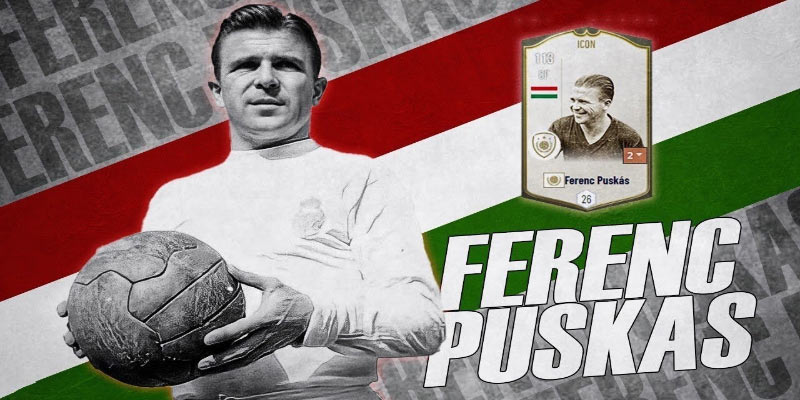
Ferenc Puskás is a name synonymous with football greatness. Known for his electrifying skill and unmatched precision, Puskás revolutionized the game with his extraordinary ability to score goals. His legacy is not just about statistics but about the passion he brought to every match. From breaking records to leading Hungary’s golden generation, Puskás’ influence extends far beyond his era. This article uncovers the legendary moments that shaped his iconic career and the lasting impact he had on football, inspiring generations to come.
Top Achievements of Ferenc Puskás
Puskás’s career is adorned with numerous accolades, showcasing his prowess as an unparalleled athlete.
Club Success
Ferenc Puskás spent the majority of his club career playing for two major teams: Honvéd in Hungary and Real Madrid in Spain. His tenure at Real Madrid was particularly fruitful, where he won multiple European Cups. His ability to score consistently in crucial matches set a standard that many strikers still aspire to reach today.
International Glory
On the international stage, Puskás represented Hungary in several high-profile tournaments, including the FIFA World Cup. His role in leading the Hungarian national team, often referred to as the Golden Team, to the 1954 World Cup final solidified his reputation as a footballing legend. Despite finishing as runners-up, his performance throughout the tournament was nothing short of spectacular.
Individual Accolades
Throughout his career, Puskás received numerous individual awards, recognizing his exceptional talent and contribution to the sport. Among these honors, he was named the Best Player in Europe and inducted into various Hall of Fames. These accolades are a fitting tribute to a player whose commitment to excellence was unwavering.
Ferenc Puskás and the Hungarian Golden Team
The term “Golden Team” encapsulates the magic and brilliance of the Hungarian national side during the late 1940s and early 1950s. Ferenc Puskás was the beating heart of this team, leading them to unprecedented success.
The Rise of the Golden Team
Formed amidst a backdrop of societal change, the Hungarian Golden Team captured the imagination of fans, blending artistry with athleticism. Under the guidance of coach Gusztáv Sebes, the team adopted an innovative style of play that emphasized fluid movement and tactical awareness. Puskás’s emergence as the star player provided a focal point for the team’s attacking prowess.
Historic Matches
The Golden Team achieved notoriety for their sensational victories, including a stunning 8-3 win over England at Wembley. This match not only showcased Hungary’s dominance but also demonstrated Puskás’s ability to perform on the grandest stage. Notably, he scored two goals in that historic encounter, further solidifying his status as a footballing genius.
The Downfall and Its Impact
Despite their triumphs, the Golden Team faced heartbreak in the 1954 World Cup final against West Germany. The loss was a devastating blow, yet Puskás’s legacy endured. The spirit of that team inspired future generations of Hungarian footballers, establishing a benchmark for excellence that remains relevant today.
Puskás’ Impact on Modern Football
Ferenc Puskás‘s influence on modern football is profound and expansive, impacting not only players but also the tactical philosophies of coaching.
Tactical Evolution
Football tactics have evolved significantly since Puskás’s era, yet his emphasis on teamwork and strategic play remains relevant. Coaches draw inspiration from his ability to orchestrate attacks, integrating similar principles into contemporary formations. The concept of ‘false nines’ and fluid attacking movements can trace their roots back to Puskás’s style.
Player Development
Young athletes today benefit from studying Puskás’s techniques. His dribbling skills, shooting accuracy, and positional awareness exemplify qualities that every aspiring player aims to develop. Various training academies incorporate drills inspired by Puskás, acknowledging his role in shaping future generations of football talents.
Cultural Representation in Football
Puskás’s significance extends beyond the pitch, influencing how football is perceived culturally. His story symbolizes the intersection of sports and identity, demonstrating how great athletes can serve as representatives of their nations. By embodying the values and struggles of Hungary, Puskás helped shape the narrative of football as a transcendent force in society.





